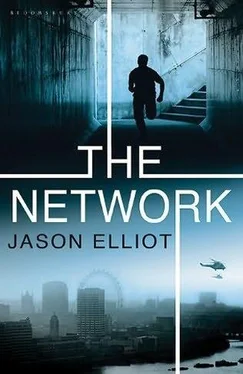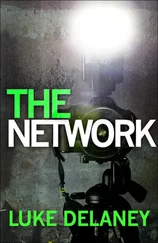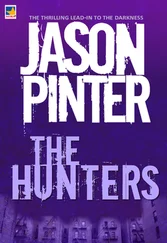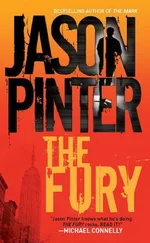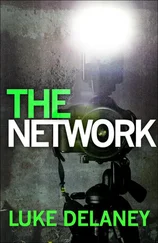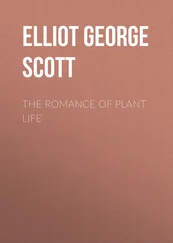Jason Elliot - The Network
Здесь есть возможность читать онлайн «Jason Elliot - The Network» весь текст электронной книги совершенно бесплатно (целиком полную версию без сокращений). В некоторых случаях можно слушать аудио, скачать через торрент в формате fb2 и присутствует краткое содержание. Жанр: Триллер, на английском языке. Описание произведения, (предисловие) а так же отзывы посетителей доступны на портале библиотеки ЛибКат.
- Название:The Network
- Автор:
- Жанр:
- Год:неизвестен
- ISBN:нет данных
- Рейтинг книги:4 / 5. Голосов: 1
-
Избранное:Добавить в избранное
- Отзывы:
-
Ваша оценка:
- 80
- 1
- 2
- 3
- 4
- 5
The Network: краткое содержание, описание и аннотация
Предлагаем к чтению аннотацию, описание, краткое содержание или предисловие (зависит от того, что написал сам автор книги «The Network»). Если вы не нашли необходимую информацию о книге — напишите в комментариях, мы постараемся отыскать её.
The Network — читать онлайн бесплатно полную книгу (весь текст) целиком
Ниже представлен текст книги, разбитый по страницам. Система сохранения места последней прочитанной страницы, позволяет с удобством читать онлайн бесплатно книгу «The Network», без необходимости каждый раз заново искать на чём Вы остановились. Поставьте закладку, и сможете в любой момент перейти на страницу, на которой закончили чтение.
Интервал:
Закладка:
‘That’ll be their commander,’ says H.
We meet him as we emerge from the dusty doorway at the foot of the niche. He’s unexpectedly friendly, intrigued to meet foreigners, and suggests we be his guests for the night, even though it’s obvious we have no choice in the matter. We follow him in the vehicles to a fortified compound, where we park inside the gates and unpack our things.
Whether as a courtesy or precaution, an armed Talib follows us everywhere. I suspect it’s a bit of both. We are all shown into a long room strewn with carpets, and the first of many glasses of tea is poured. As dusk falls, the room fills gradually with about thirty armed men.
‘It’s like a dinner party in Notting Hill,’ says H, as the men lay their AKs by their sides like napkins. The magazines of their weapons are doubled and taped together to give them twice the amount of ammunition without having to grope around for a fresh magazine.
The commander is a man of about thirty. We sit next to him as the meal is served. His manners are peculiarly modern, and I wonder whether he grew up in Pakistan. He has none of the formality or reserve of most Afghans I’ve met, and asks me directly about the work we’ve come to carry out. I tell him that even in England we’re concerned about helping Afghanistan with its mine problem. And because everything in Afghanistan is about establishing allegiances and invoking the names of powerful strangers, I make up a speech about the Queen, whose authority they can’t quite assess from this distance, and how keen she is to see peace and prosperity in Afghanistan, and emphasise how grateful she’ll be for the assistance we’re receiving here in Bamiyan.
‘We beat the British,’ he says cheerfully, ‘last time they came to Afghanistan.’
‘War was different then,’ I say, ‘and battles were fought man to man.’
‘Perhaps they will come back,’ he says with a smile, ‘and we can fight them again the same way.’
As darkness falls a fighter shows us to our room. We’ve been on the road only a couple of days but for some reason it feels like weeks. For a moment we wonder whether to position ourselves near the door or the window.
‘If they’re planning to kill you,’ I tell H, ‘the preferred method is to drop a rock on your head.’
‘With all those weapons they hardly need a rock.’
‘You forget how thrifty Afghans are. A rock will save them the expense of a bullet.’
‘Well,’ he says, ‘I hope it’s big enough. I’ve got quite a hard head.’
We leave the next morning, our heads intact. The commander has given us a handwritten letter of permission to travel as far as Yakawlang, but can’t guarantee much after that. I’m glad we’ve got the letter. There are several checkpoints as we head west, and at each we’re waved to a halt by a pair of fighters whose surly manner improves once our letter has been inspected and passed around. We’ve chosen the right combination of personalities for the lead vehicle. Sher Del is not only a Pashtun, but his white beard and confident manner give him an authority that no one will easily challenge. Aref plays the role of boffinish administrator to perfection, and between the two of them all suspicions are put to rest.
Beyond Bamiyan the high mountains draw apart, the cultivated plain broadens to a width of several miles, and the glittering braid of the river and its tall green poplars runs beside us. The lesser hills are bare and reddish, and against their starkness the valley and its carefully tended fields and borders once again seem all the more delicate.
We reach Yakawlang in the afternoon, refuel the vehicles and eat a meal of kebabs. The town has an unhappy air and looks as though it’s suffered from recent fighting, which a number of abandoned armoured vehicles confirm. We don’t want to linger, and drive south into the mountains towards Panjab. There’s almost no wheeled traffic, but we pass several families struggling on foot with their possessions piled onto donkeys, and a woman clutching a child begs us for money. The desperation in her expression is obvious and she claims the Taliban have forced her from her home. Her face and gestures haunt me like a presence as we drive further south along a deteriorating route, and our pace slows to a crawl. Several times we catch sight of trucks which have fallen from the road and tumbled into the ravines below.
As we near the Isharat Pass, the lead vehicle has its first puncture, and while Aref and Sher Del are changing the wheel, H and I get out to admire the spectacular scenery.
‘It’s not like anywhere I’ve ever seen,’ he says. ‘Every part of it’s different, like a different country. You could never win a war here.’
I ask him why not.
‘It’s the people. They belong too much. They’d never give it up.’
We’re looking over to the east where about thirty miles away the highest peaks of the Koh-e Baba range rear up from among the lesser summits in a magnificent glistening knot of ice. A purplish haze is settling over the landscape and after the relentless lurching of the route the silence is almost overwhelming. Quietly, H recites the lines of a poem.
‘We are the pilgrims, master; we shall go
Always a little further: it may be
Beyond the last blue mountain barred with snow
Across that angry or that glimmering sea
‘Regimental poem,’ he says as if emerging from a private trance. ‘Don’t know the rest.’ He looks back over the darkening mountains. ‘I’m glad I came. This is a special place.’
‘There’s some things I haven’t told you,’ I say.
‘That’s normal,’ he says. ‘There’s stuff I haven’t told you either.’
‘Like what?’
‘You killed a mate of mine, for one thing,’ he says after a pause.
The fact that this doesn’t make any sense to me does nothing to lessen the shock.
‘How? When?’
‘In Kuwait. The team that busted your Lebanese mate out. They were all Regiment blokes. You took out the team leader.’
For years I’ve never really understood why the man I killed hesitated when he was about to shoot me.
‘I didn’t know,’ I say.
‘You weren’t supposed to. It was a Special Projects op. We had the order to go in as an Israeli team. Weirdest thing is that it was going to be me leading it.’ He smiles. ‘You would have slotted me instead.’
‘I’m sorry about your friend.’
‘Kenny was his name. He was from up north, Glasgow, I think. Couldn’t understand a word he said half the time. I nearly killed him myself once on a hostage rescue practice. That’s the way it is.’ He brushes some dust from his arm. ‘Anyway, what aren’t you telling me?’
I wonder how much I should say, but the power of the land has stripped us of our secrets now, and there seems no purpose in hiding anything from him any longer. So I tell him what I can, because I cannot tell him everything, right up to my meeting with Manny in Kabul, and about the plan that we made together in the ruins of the Darul Aman Palace.
At dusk we stop in a tiny settlement and the five of us sleep on the floor of a small room in our sleeping bags. In the morning the old man who provided our accommodation brings a bundle wrapped in newspaper and says he wants to show us something very old. He unwraps a dozen small yellowish figurines that do indeed look very old, and tells us they come from somewhere nearby and that they date from the time of the Younan, the Greeks. The faces are carved from some sort of bone or tusk and portray a series of men with staring eyes and long moustaches wearing crowns or ornate headbands. They look more like the faces of the Lewis chessmen than anything from this part of the world, and it’s impossible not to wonder what uncharted portion of the region’s history they really belong to. Then he shows us an enigmatic oval-shaped stone medallion depicting a soldier with a lance, wearing a kilt-like skirt and sandals with long leather straps like a centurion’s. The script resembles nothing I’ve even seen.
Читать дальшеИнтервал:
Закладка:
Похожие книги на «The Network»
Представляем Вашему вниманию похожие книги на «The Network» списком для выбора. Мы отобрали схожую по названию и смыслу литературу в надежде предоставить читателям больше вариантов отыскать новые, интересные, ещё непрочитанные произведения.
Обсуждение, отзывы о книге «The Network» и просто собственные мнения читателей. Оставьте ваши комментарии, напишите, что Вы думаете о произведении, его смысле или главных героях. Укажите что конкретно понравилось, а что нет, и почему Вы так считаете.
